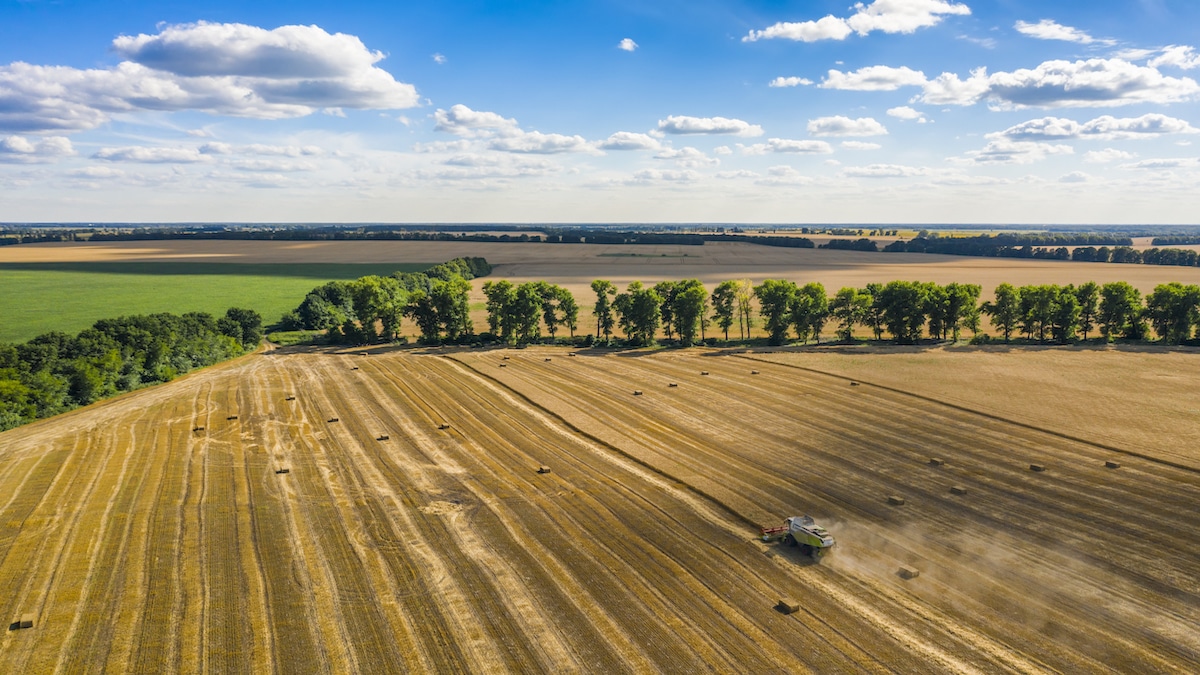
Ukraine Invasion Could Cause Global Food Crisis, UN Warns

The Russian invasion of Ukraine could lead to a global food crisis, the UN’s Food and Agriculture Organization (FAO) has warned.
The coronavirus pandemic has already pushed food prices higher, putting strain on developing countries especially. Now, experts worry that the invasion could raise them even further.
“My greatest fear is that the conflict continues – then we will have a situation of significant levels of food price rises, in poor countries that were already in an extremely weak financial situation owing to Covid-19,” FAO chief economist Maximo Torero told The Guardian. “The number of chronically hungry people will grow significantly, if that is the case.”
Both Russia and Ukraine are major exporters of food staples and agricultural fertilizers. The two countries produce around 30 percent of the wheat, more than three-quarters of the sunflower seed oil and one third of the barley exported to world markets, according to FAO data reported by The Washington Post. In 2021, Russia was also the world’s No. 1 exporter of nitrogen fertilizers as well as the No. 2 exporter of potassic and phosphorous fertilizers, according to FAO.
The FAO calculated that a reduction in wheat and sunflower seed exports from the two countries could raise already high prices by eight to 22 percent during the 2022 to 2023 season. While production got off to a good start for both countries this year, around 20 to 30 percent of the land usually reserved for winter cereals, maize and sunflower seed in Ukraine may end up either unplanted or unharvested because of the invasion. In Russia, there are no barriers to planting and harvesting, but international sanctions may reduce exports.
This could cause a humanitarian crisis both in Ukraine and internationally. In Ukraine, the invasion is disrupting economic activity and raising prices, which could lead to increased food insecurity. If food exports are reduced from the two countries for an extended period, this could up the number of undernourished people by eight to 13 million during 2022-2023, with the most impacted populations living in the Asia-Pacific region, sub-Saharan Africa, the Near East and North Africa.
Further, Russian fertilizer and coal billionaire Andrei Melnichenko said Monday that the war was raising the price on global fertilizers, making them harder for farmers to afford, Reuters reported. Melnichenko, who founded Russian fertilizer company EuroChem, has been sanctioned by the EU.
“One of the victims of this crisis will be agriculture and food,” he said, as Reuters reported.
To reduce the risks from the invasion, the FAO has made the following suggestions:
- Global trade in food and fertilizers should be kept as open as possible.
- Countries that depend on Ukraine or Russia for their food imports should start looking for other sources as well.
- Ukraine should expand its national social protection system to make sure everyone impacted by the conflict is covered.
- Countries hosting refugees should make sure that refugees have access to social benefits and job opportunities and remove barriers to these benefits.
- Countries potentially impacted by the conflict should avoid responding with export restrictions.
- Markets should be as transparent as possible and dialogue between countries should increase.
FAO is also scaling up efforts to fight food insecurity in Ukraine itself, focusing on helping smallholder farmers, the organization said Thursday. It currently has a team of 81 experts in the country. The UN agency said it was working to protect harvests and livestock during a crucial period: farmers prepare land for vegetables in the middle of March and prepare land for wheat, barley, maize and sunflowers from February to May.
“We are working 24/7 to scale up. We are fully committed to staying and delivering for everyone affected and particularly the farmers and people deriving their livelihood from food and agriculture,” FAO Ukraine Emergency Response Manager Mara Lopes said.

 233k
233k  41k
41k  Subscribe
Subscribe 